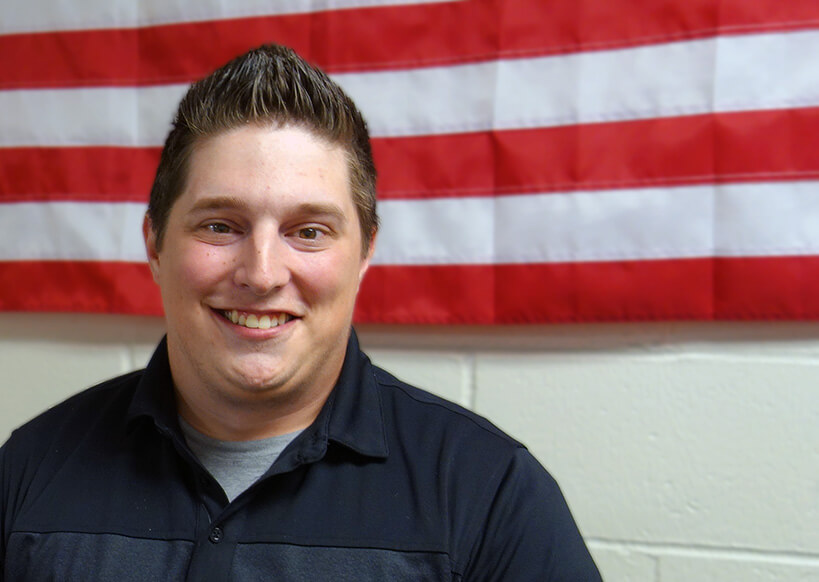
Story and Photo by Jeremiah Kalb
On a rare day that Security Supervisor Tanner Dillon and his team do not have a security event, you can be certain he is self-analyzing how they could have handled previous incidents better.
“This is incredibly important and making this a habit is something that I prioritize,” Dillon says. “This is the best way to become better and improve.”
Dillon knows it is impossible to be 100% prepared for every situation. Still, it is always a good idea to look back and ask questions, even if the response went exceptionally well.
Born and raised in Boise, Idaho, Dillon seized a unique opportunity in February to develop a new physical security program from the ground up for our Organization when the Rexburg Police Department contract ended.
“This is a new program and we are always looking for ways to improve our trainings to better be prepared for and prevent future incidents,” he says.
Dillon reviews daily security-related incident reports looking for ways to improve.
The organization’s security program consists of verbal and physical de-escalation techniques.
“We are trained to respond to security risks such as combative or aggravated patients and visitors.”
Every Wednesday, Security personnel and some BHU and ER staff log time on the blue mat at PAC Jiu-Jitsu in Rexburg to work on their de-escalation and Jiu-Jitsu skills.
Jiu-jitsu is a martial art focused on hand-to-hand techniques to subdue a combative person on the ground. With proper training, a smaller person can subdue a larger person empty-handedly.
“Physical interactions are a last resort.”
Dillon prefers to manage dicey situations using the art of words.
An excellent example of ‘verbal Jiu-Jitsu’ is a scene from ‘Enter the Dragon’ where Bruce Lee describes his martial arts style as the ‘art of fighting without fighting’. Lee redirects a hostile situation by nicely setting an aggressor out to sea in a small boat, much to the delight of everyone else on the big boat.
Sometimes physical interactions are the only remaining option.
“So having this program [Jiu-Jitsu] is a great tool in our belt to help keep all involved in a tense situation safe.”
On average, Security responds to one to two events per 24 hours.
There is a common security threat that keeps them on their toes around the clock.
“That would be responding to the ER or BHU to help the medical staff with a combative patient or a patient who might get combative,” Dillon says.
His most memorable security event to date involved a combative patient on the BHU unit. He and several others responded quickly to help de-escalate the situation. While the incident was emotionally charged, everyone remained safe.
Thanks to Dillon and others remaining calm and collected, no one was hurt or injured. “No further incident happened with that specific patient.”
He invites all employees to live most of their days in Condition Yellow, a level of awareness taught by the late Jeff Cooper. “It is not necessarily being paranoid or nervous all the time,” Dillon says. “It’s only being aware of what is going on around you.”
This state of awareness will help prevent one from being surprised by the actions of another person.
In Condition White, you are relaxed and unaware of what is happening around you. Dillon explained that this is where things are so routine that people are not looking or being attentive to certain things around them. It is natural and not inherently wrong, but they are typically more susceptible or prone to being a victim of their surroundings.
“Condition Yellow allows you to recognize things and security risks, giving you more time to react.”
Dillon most enjoys rounding and checking in with staff to see how they are doing. “Mainly showing that I am around to keep them safe and serve and help them with their needs.”
